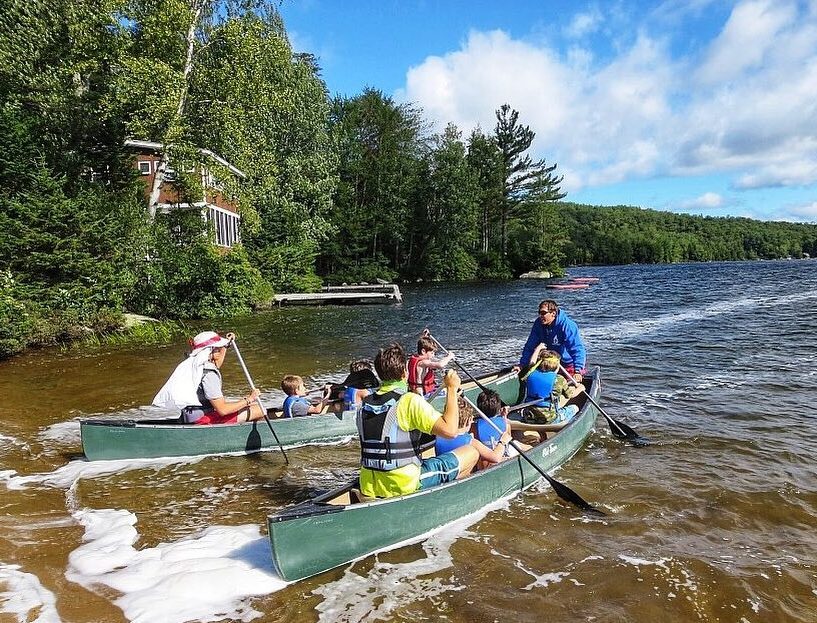Why Summer Camp Is More Important than Ever
When Ernest Balch opened the country’s first summer camp in New Hampshire nearly 140 years ago, he intended it to be a place where the sons of wealthy families vacationing in the White Mountains could learn how to become self-sufficient and master the outdoors. Soon, parents who stayed in the city during the summer to work began sending their kids to camps for similar reasons. The separation from their parents and the city was meant to “toughen” them up, keep them occupied and out of trouble, and connect them with the great outdoors. (Not to mention the fewer family members sharing a cramped apartment without air conditioning the better.)
Today, parents still send their kids to camp to experience nature in a way that isn’t possible at home. Even the suburbs and its manicured lawns can’t compare to the wild and rugged setting of sleepaway camp. And camp is still a place where kids and parents learn to thrive apart from each other. This is not so much meant to “toughen” kids up, but to expose them to meaningful relationships outside the home, a crucial step toward independence particularly after years of pandemic restrictions.
Overall, sleepaway camp has evolved into a caring and intentional environment that helps kids develop into strong, capable, contributing adults.
Here are some of the other ways that camp has become even more vital to a child’s growth.
Summer camp boosts self-confidence
Even though we have raised kids in an era with a focus on self-esteem and confidence, they don’t truly gain these attributes unless they actually do things that make them more confident. At camp, they experience tremendous successes every day, away from their parents and therefore completely their own, which leads to a greater sense of confidence.
The independence that kids learn at camp allows them to develop and grow into their own person. (In fact, many believe that kids who go to sleepaway camp have an easier time adjusting to college life down the road.)
Summer camp forges friendship, community… and wellness
Summer camp is the easiest place for kids to make friends and feel a sense of belonging—which in turn can help combat stress and anxiety. These conditions are on the rise among kids today, and experts have traced the cause back to everything from lockdown drills to higher academic stakes. We know intuitively that nothing correlates more to a happy life than feeling connected to friends and community. But science also supports the fact that being social has a positive effect on the brain.
According to psychologist Susan Pinker, “Face-to-face contact releases a whole cascade of neurotransmitters and, like a vaccine, they protect you now, in the present, and well into the future.” Perhaps this is why adolescents who have close friends in their teenage years not only adapt well to stress, but also have a lower rate of depression or anxiety later in life.

Summer camp teaches valuable life skills
Spending seven weeks surrounded by your peers instead of your parents gives campers a leg up on valuable life lessons that many kids are not exposed to until college. Learning resiliency, how to work as a team, communicating your needs, problem solving, conflict resolution, and leadership skills are all part of the positive social and emotional skills that campers gain from camp.
Summer camp forces kids to take a break from electronics
For many parents today, knowing their children will be screen-free for seven weeks is the most compelling reason for sending their child to camp.
In this terrific post by a fellow camp director, Andy Pritikin cites an eye-opening study you might be unaware of, which found that the “happiest kids use screens less than an hour per day, and that teens who spend more time in face-to-face, in-person interaction with friends are happiest.”
So how do you tear them away from their devices while also “giving them the best opportunity to grow into good people and contributing members of society?”
You guessed it: Summer camp.








